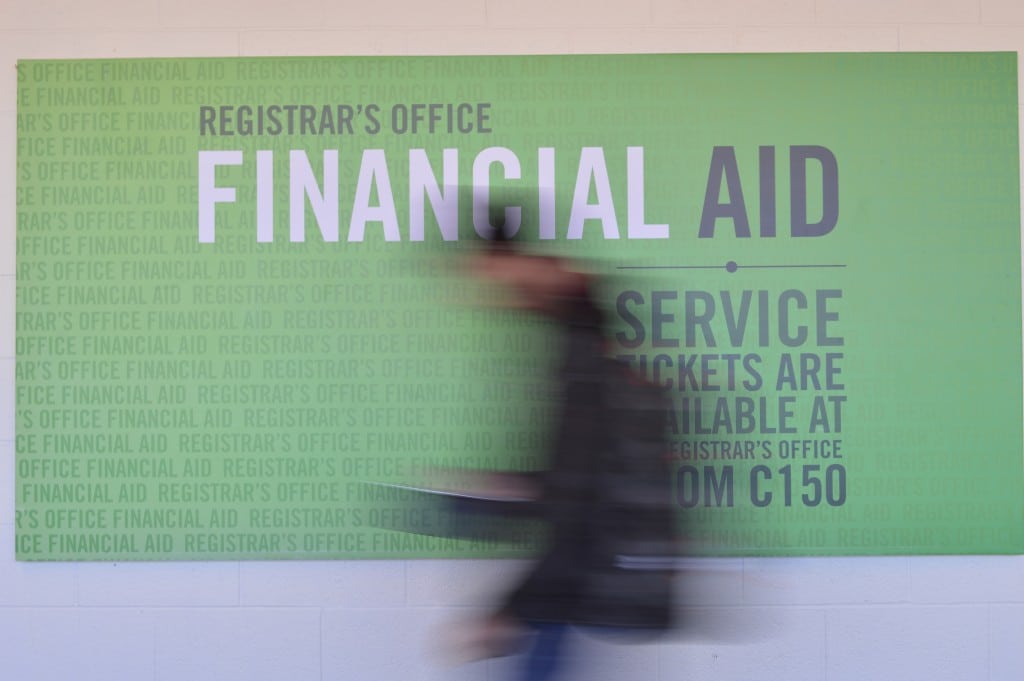
Tuition increases next year will set Algonquin students back the equivalent of a couple of nosebleed seats to see Taylor Swift.
The college states that the average tuition cost for a full-time student is $4,100. This would result in a $123 increase in tuition fees – or 3 per cent.
The Board of Governors approved the increase, along with the 2015 budget, without discussion. Observers at the meeting were told that the contents of the budget had been debated extensively during a retreat earlier in the day.
The province has mandated that annual tuition fee increases cannot exceed three per cent for domestic students. Algonquin’s tuition increase will come in just below the limit – at 2.97 per cent.
The board was told that most other colleges were implementing similar increases. “We’re very much aligned with what is going on provincially,” said Registrar Jeff Macnab.
The college is under increased financial pressure. Ten years ago the college received 50 per cent of its funding from the provincial government. However, in an effort to cut budget deficits, the provincial government has cut back on the amount of money being given to colleges.
“Ontario colleges rank last in terms of funding from provincial governments,” said Doug Wotherspoon, the vice president of International and Strategic Priorities.
Students will also see compulsory ancillary fees increase. This is mainly due to the implementation of the U-Pass. A referendum is mandatory for any fee increase that exceeds 20 per cent. Students voted overwhelmingly in favour of implementing the U-Pass last semester.
For those who take public transit, the U-Pass will allow students to save almost 40 per cent on transit costs.
Additionally, the board was also updated on the status of Algonquin’s two campuses in the Middle East. The campus in Jazan, Saudi Arabia boasts a 95 per cent employment rate for graduates.
However, the campus faces many challenges. Chief among them is the low attendance and retention rates.
The board was updated on the progress of the campus in Kuwait, which is due to open Aug. 31.
“The facility is 80 to 85 per cent finished,” said Wotherspoon.
“I’m cautiously optimistic about the opening timelines,” Wotherspoon said. “But it’s going to be tight.”
The campus needs to get the go-ahead from the Private University Council – a sub-ministry of the Kuwait Department of Education.
However, the council expressed skepticism about Algonquin’s ability to open on time.
“If I was a betting man I’d give it fifty-fifty,” said Wotherspoon. “Maybe fifty one-forty nine because I’m cautiously optimistic.”
“The facility really is top-notch,” Wotherspoon said. “The library would be the envy even of this college.”
The Kuwait campus is currently in the process of hiring staff and faculty.
Another topic of discussion at the meeting was deferred maintenance at Algonquin’s three Canadian campuses.
According to a report prepared for the college, 28 per cent of buildings on Algonquin’s three campuses are ranked “poor” in condition. This means that maintenance needs to be done on several of these buildings.
For example, the windows in B building – which are the original windows – have“` condensation on them. The cost estimate for replacing the windows is anywhere from $800,000 to $1.6 million.
The board also voted in favour of an entrepreneurial opportunity with digital distribution firm Kivuto. The aim is to improve e-textbook resources and enhance e-reader technology. The $450,000 investment in Kivuto could eventually provide alternative revenue to the college.


